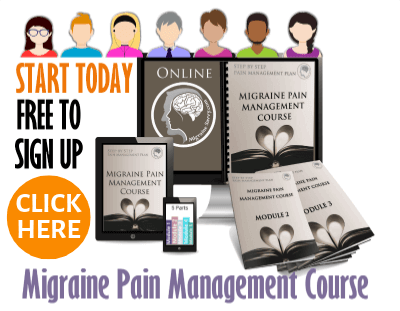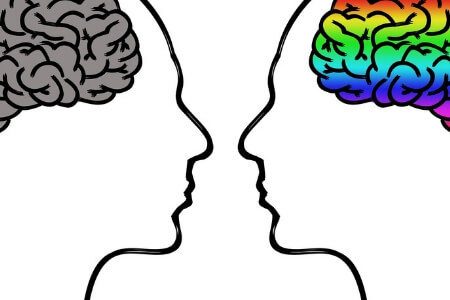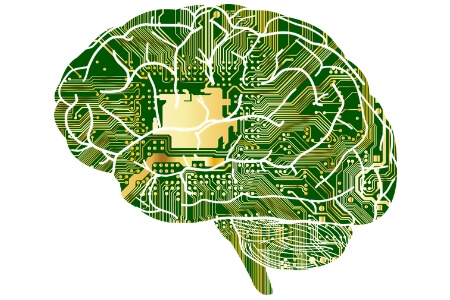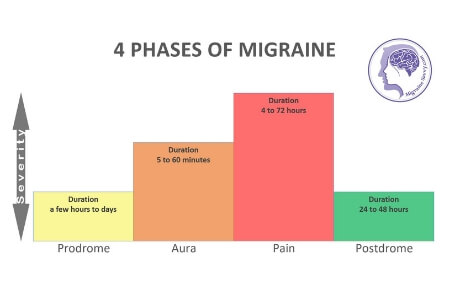- Home
- Migraine Types
- What Helps Stomach Migraines
COMPLETE MAGNESIUM SUPPORT
My Top Choice - Magnesium Breakthrough - The ONLY supplement with all 7 essential magnesium types in one formula. Most only have 1-2 types, leaving you deficient.
What Helps Stomach Migraines?
Rizatriptan and Almotriptan are effective treatments for severe stomach migraines. More mild ones can possibly be managed with sleep, ginger tea, peppermint essential oil, peppermint soft gels, or anti-nausea wrist bands. Consider these options before taking heavy duty triptan medications.
My #1 Choice in Magnesium Supplements
If your son or daughter suffers from this type of migraine, it will pay off if you can be proactive. Things like keeping a diary and helping them learn to manage stress will pay off in many ways.
You can work with your doctor to develop prevention strategies. To help you cope with this right now, here are some more details, vital things to be aware of, and helpful tips.
Stomach pain, nausea and vomiting can be signs of stomach migraines in
children.
Children who suffer from stomach migraines most typically have migraine somewhere in their family tree. It has been proven to be an inherited condition... yes... here comes the guilt as a parent.
Sadly, most children who experience this type of migraine will develop a more classic type of migraine in adulthood.
This type of migraine is most often misdiagnosed and dismissed by parents and teachers. You yourself, may have mistaken this type of migraine for a cold or flu bug due to the similar symptoms.
The statistics say that 10% of children get migraines, and an even
higher percentage of teenagers get them. Deep sleep is highly
recommended as an effective remedy. But your doctor will most likely run
tests to rule out anything more serious and life threatening.
Deep sleep may be all they need to help stop the attack.
Signs And Symptoms to Be Aware Of
Stomach migraines are also called abdominal migraines. The diagnostic criteria is:
At least five attacks having the following symptoms:
- Moderate to severe midline pain (around the navel);
- Pain lasting one to seventy-two hours (which is 3 days), if left untreated or what you treated it with was not effective;
- Dull quality of pain (as opposed to sharp, stabbing or throbbing).
It can be accompanied by one or more of the following:
- Loss of appetite
- Nausea
- Vomiting
- Pallor – which is paleness, a white complexion
- Dark circles under the eyes
- Dizziness, or dizzy spells
- Fainting
- Flushing
- Headache
- Yawning, listlessness, lethargy, tiredness
If your child seems to get recurring stomach migraines, it will be worth a trip to your doctor and perhaps a specialist or neurologist to get the correct diagnosis as early as possible. The sooner you can get a pain management strategy organized, the sooner you can teach your child how to deal with these debilitating attacks.
Get the right diagnosis, so you can get the right treatment.
When children get migraines, the pain is not just on one side. Also, the headache may, or may not, accompany the stomach pain, nausea and vomiting. It might be really difficult to tell if this is just an ordinary stomach ache, flu, infection or other gastrointestinal problem.
My #1 Choice in Magnesium Supplements
Can Stomach Migraines Be Prevented?
The answer is... that depends on the trigger and what is causing the stomach pain.
If it is overexertion from physical exercise, then you
can reduce the physical exercise. If it is from say chocolate, then you
can refrain from eating chocolate, and... avoid it all together.
Food triggers can play a large part in being migraine triggers. You
will have to work with your child and your doctor to determine them.
So, the question of prevention is a big one. There is often no way to completely eliminate migraines from your life once they begin. Prophylactics and preventative medications may do the trick in efficiently reducing symptoms and aborting the pain phase from your child's life. But be prepared to deal with a life long condition.
Having said that, don't despair... there is more help available to you now than ever before in history.
What You Can Do Right Now to Help
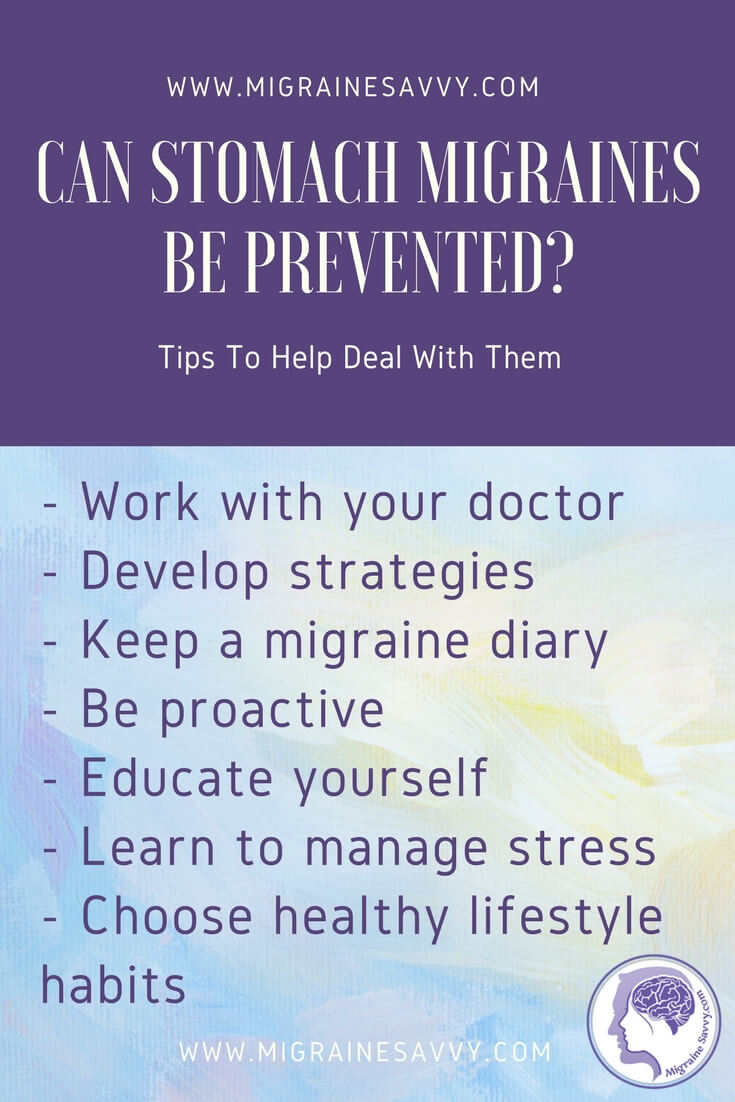
Migraine prevention in children or
adults
might turn out to become trial and error, so here are some things to get you off to a good start:
Educate yourself and your child about stomach migraines. Being informed will help you make the right choices to help prevent and manage the migraine episodes.
Work with your doctor for solutions, strategies, and successful medications for your child's condition. You may need to be quite proactive to find the best course of action for the treatment and prevention of migraines for your son or daughter.
Watch for any signs of emotional side effects or depression.
You may want to consider a little extra migraine support in the form of professional pain counseling.
Choosing healthy lifestyle habits and learning to manage stress may play a role in reducing the risk of stomach migraines in children.
An essential tool is a migraine diary. Keep a journal to record your child’s symptoms, moods, activities, etc.
If they are very young, get them to draw a picture of where it hurts to help you provide your doctor with more information.
If your child's attacks are severe, talk to your doctor about medications.
There are effective abdominal migraine treatments available for children to use:
- Anti-nausea medications: Phenergan (promethazine) or Reglan (metoclopramide). These also have anti-migraine effects as well.
- NSAIDS: Ibuprofen or Naproxen.
- Triptans: the nasal form of Imitrex, for example. This is a delicate
area as Triptans are only recently officially approved to treat young children. They are being used anyway by many doctors who have experienced some good
results with them. But... they are also known to intensify nausea and
vomiting.
Two migraine abortive medications have been approved for the use in childhood migraines (at time of writing):
Maxalt® (Rizatriptan), a dissolving wafer, is now officially approved by the FDA for use in children - aged 6 years old and up and it is useful for children with nausea and vomiting by bypassing the digestive process; and
Axert® (Almotriptan malate) was also approved for children aged 12 years old and up.
My #1 Choice in Magnesium Supplements
More To Read on What Helps Children with Migraine
Here are some more articles to read to help you and your child manage their attacks:
I also recommend testing some peppermint essential oil, peppermint soft-gels, or anti-nausea wrist bands before taking medications. You can get them here on Amazon - Anti-nausea aids.
These are just a few ideas for you to test out. Your
physician must be consulted to determine what medications and treatments will work best for your child.
Until next time, be well, and may your toughest days be met with comfort and care. Keep going - you are stronger than you know.
~ Holly, Migraine Savvy
WANT MORE TIPS? Subscribe to my newsletter and follow along on Facebook and Pinterest for all of the latest updates.
MIGRAINE TYPES Related Articles
How to be more MIGRAINE SAVVY right now...
References:
1. Robert, T. (2009) Living Well with Migraine Disease and Headaches. Harper Collins Publishers: New York.
2. Webmd.com (2015) Abdominal Migraines in Children and Adults. [Online], Available at: http://www.webmd.com/migraines-headaches/abdominal-migraines-children-adults. Updated Feb 2018.




